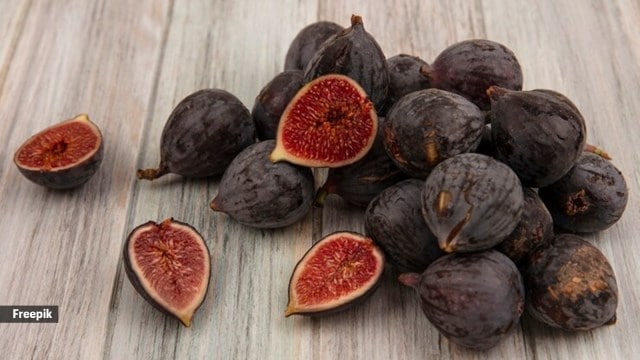📣 For more lifestyle news, click here to join our WhatsApp Channel and also follow us on Instagram
Are figs non-vegetarian? Understanding the surprising role of fig wasps in pollination
Does the presence of wasps inside figs mean they should be avoided by people following a strict vegetarian diet?
 Fig pollination is a fascinating process involving fig wasps (Source: Freepik)
Fig pollination is a fascinating process involving fig wasps (Source: Freepik)Figs, or anjeer, are a popular fruit known for their rich taste, high fibre, and nutritional benefits. However, many people may be surprised to learn that figs are technically not considered vegetarian by some standards.
Highlighted by actor and content creator Shenaz Treasury, this unusual classification stems from a fascinating biological process involving fig wasps.
Watch the video:
View this post on Instagram
To gain more clarity, indianexpress.com spoke to Kanikka Malhotra, a consultant dietician and certified diabetes educator, to understand the science behind fig pollination, the impact of wasps on the fruit, and how vegetarians can approach eating figs.
How fig pollination works
Fig pollination is a fascinating process involving fig wasps, says Malhotra, which are essential for the reproduction of many fig species. “Female fig wasps enter the fig through a tiny opening, the ostiole, carrying pollen from their previous fig. Inside, they pollinate the flowers and lay eggs in some of them. The fig provides a nursery for the wasp larvae, which develop within the seeds. Male wasps emerge first, mate with females before they hatch, and then die inside the fig. The fertilised females exit, laden with pollen, to find new figs, thus continuing the cycle of mutual dependence between figs and wasps,” she explains.
Should figs be avoided by people following a strict vegetarian diet?
Malhotra agrees that the presence of wasps in figs raises concerns for strict vegetarians. “While it is true that some figs rely on fig wasps for pollination, wasps often die inside the fruit after pollinating it.”
She notes, “However, the fig’s enzyme, ficin, breaks down the wasp’s body, assimilating it into the fruit, making it indistinguishable from the fig itself. Many vegetarians choose to avoid figs due to this process, viewing it as consuming animal remains. Others consider it a natural ecological cycle and continue to eat figs, as the wasp’s remains are not visible and are fully digested.”
 Vegetarians and vegans should consider the unique pollination process of figs when making dietary choices (Source: Freepik)
Vegetarians and vegans should consider the unique pollination process of figs when making dietary choices (Source: Freepik)
Differences between wild figs and commercially cultivated figs
Malhotra informs that wild figs and commercially cultivated figs differ significantly in their reliance on wasp pollination. “Wild figs, particularly dioecious species, depend on specific fig wasps for pollination and reproduction, often resulting in wasp remains inside the fruit.”
In contrast, she says that many commercially cultivated varieties, such as the common fig, are “self-pollinating and do not require wasps,” making them “more acceptable to strict vegetarians and vegans.”
This distinction affects their classification: wild figs may be viewed as non-vegetarian due to potential wasp remnants, while commercially grown figs are generally considered vegetarian-friendly as they typically lack any wasp content.
How can someone who is vegetarian or vegan make an informed decision?
Vegetarians and vegans should consider the unique pollination process of figs when making dietary choices, suggests Malhotra. Wild figs often rely on fig wasps for pollination, which can result in the presence of wasp remains inside the fruit.
She concludes, “However, many commercially cultivated figs, particularly common varieties, do not require wasp pollination and are therefore free from any insect content. To make informed decisions, individuals should check the fig variety: if it’s a self-pollinating type, it’s generally considered vegan-friendly. Understanding these distinctions allows for a more conscious approach to including figs in a vegetarian or vegan diet.”
📣 For more lifestyle news, click here to join our WhatsApp Channel and also follow us on Instagram



- 01
- 02
- 03
- 04
- 05
























